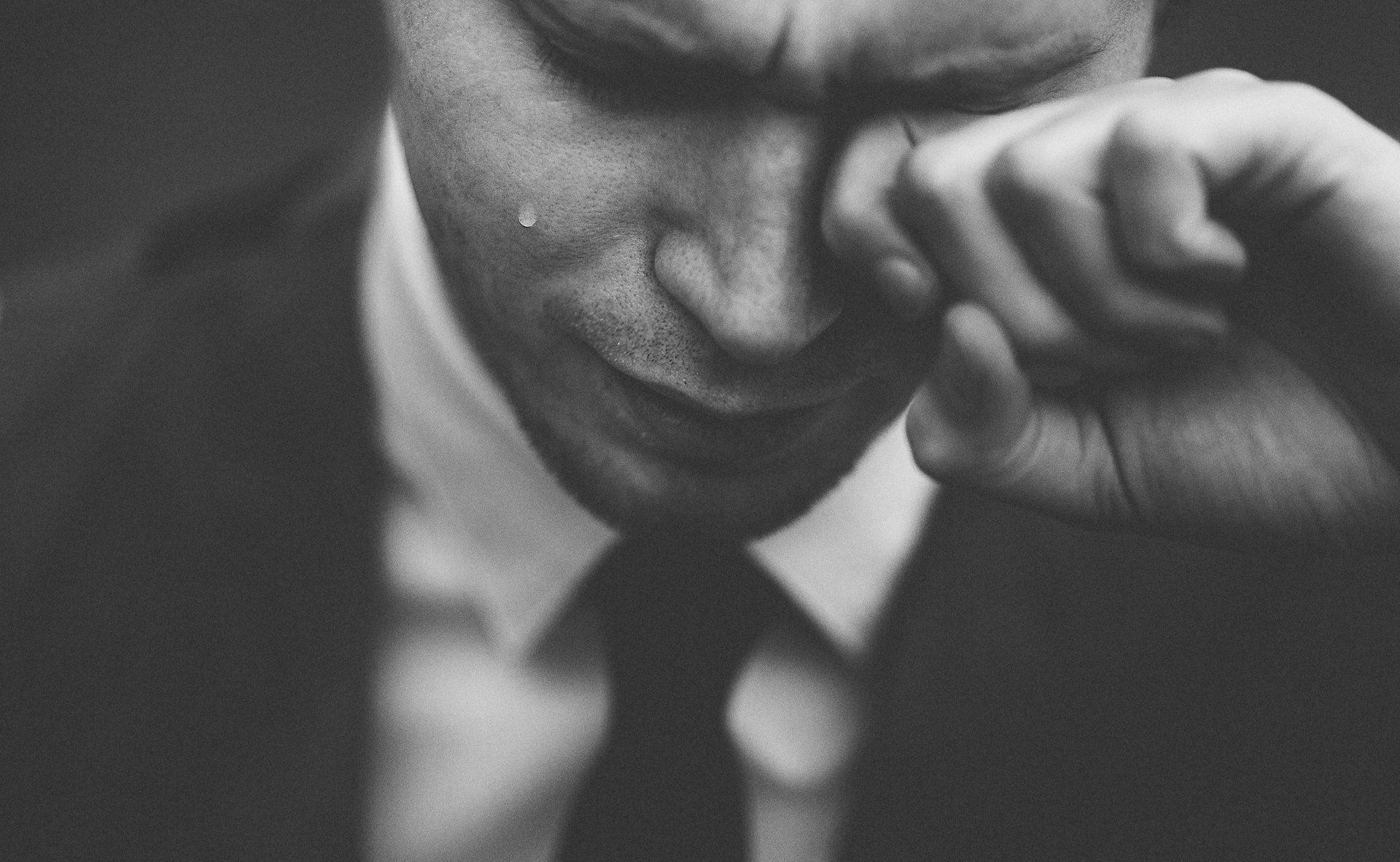Porn Addiction Counselor in Utah | Expert Help, Recovery & Support in 2025
Porn addiction is more common than many realize, and it’s not just about internet habits. It can disrupt relationships, self-esteem and mental health. Struggling alone can feel isolating, but reaching out to a specialized counselor is a proven path to real change.
Counseling for porn addiction goes beyond generic therapy. A professional who focuses on sexual addiction understands the unique patterns that keep people stuck and uses tailored strategies for healing and growth. Specialized support helps you move past shame and offers tools for lasting recovery, creating a safe space to talk openly and rebuild trust—with yourself and the people you care about.
You’re not alone, and addressing porn addiction with the right guidance is a sign of strength. To explore how different approaches work, check out the latest Pornography Addiction Treatment Options—there’s help available and a better future is possible.
What Is Porn Addiction and Who Needs Help?
Porn addiction is more than just having trouble turning off explicit content. It’s a pattern of use that feels out of control, disrupts daily life, and can lead to shame or distress. Many people wonder if their habits are “enough” to be called an addiction, but the signs are often clearer than you might think.
Understanding Porn Addiction
Porn addiction happens when watching porn becomes compulsive, causing someone to keep going back even when it leads to negative effects. Like other behavioral addictions, it isn’t just about frequency—instead, it’s about how it affects your thoughts, feelings, and actions. This type of struggle often brings guilt and secrecy, which only fuel the cycle.
Common signs include:
- Using porn as a way to avoid or numb stress.
- Feeling unable to stop despite wanting to.
- Neglecting responsibilities, relationships, or sleep.
- Needing more intense or frequent content to feel satisfied.
- Hiding usage from loved ones or lying about it.
For a deeper breakdown of symptoms and daily effects, you can read the list of porn addiction signs and symptoms from a clinical perspective.
Who Needs Help for Porn Addiction?
Anyone who feels their porn use is out of control, upsetting their loved ones, or getting in the way of everyday life should think about seeking support. People from all walks of life reach a point where they recognize their coping isn’t working, and it takes courage to admit when things have gone too far.
You might need help if:
- You’ve tried to quit or cut back, but keep slipping.
- You feel anxious, depressed, or ashamed about your usage.
- Porn is changing your self-esteem or how you see others.
- Your partner, family, or friends express concern.
- Life feels stuck or relationships become tense due to secrecy or broken trust.
Seeking support isn’t a sign of weakness. Professional counseling provides a safe, judgment-free space to unpack these issues. If you want to learn more about the proven steps and therapy models used in specialized settings, check out this detailed overview of today’s pornography recovery options.
Everyone deserves to live with confidence and connection. With the right tools, it’s possible to move past unhealthy patterns. For more insight and real-life strategies, take a look at the Discover Innova blog—it’s full of practical advice for starting fresh and building a healthier relationship with yourself.
How a Porn Addiction Counselor Supports Recovery
A skilled porn addiction counselor knows change doesn't happen overnight. They act as a steady guide, offering structure and the right mix of therapy, tools, and encouragement. Recovery is more than breaking habits—it’s about learning healthier ways to think, cope, and connect. Let's look at how professional counseling goes far beyond just talking, with therapy approaches and resources built for real progress.
Evidence-Based Therapy Methods
Counselors use science-backed therapies that address the thoughts, emotions, and patterns behind addiction. Here’s how these methods make a difference:
- Cognitive Behavioral Therapy (CBT): CBT helps clients understand the link between thoughts, urges, and actions. It teaches practical skills to identify triggers, manage cravings, and change how people react to stress and shame. Clients learn to challenge old stories about themselves and gain new confidence.
- Group Therapy: In a safe and structured group setting, clients realize they aren't alone. Group therapy brings relief from isolation, reduces shame, and builds accountability. People learn from others' setbacks and successes, creating a strong sense of support.
- Trauma-Informed Therapy: Addiction often grows from past pain or trauma. Trauma-informed counseling creates a space where every client feels safe, seen, and fully understood. Therapists help clients heal from root issues so lasting change is possible.
If you want to see how structured care can improve recovery outcomes, check out this deep dive into the Importance of Structured Addiction Therapy.
Specialized Tools and Resources
Beyond sessions, counselors bring next-level resources that help clients regain trust, stay on track, and build resilience between visits. These can include:
- Disclosure with Lie Detection: Rebuilding trust after porn addiction is hard, especially for couples. Innovo offers facilitated disclosure sessions complete with lie detection so everyone gets clarity, accountability, and a fresh start. This kind of structure helps couples address past secrecy and look forward with honesty.
- Recovery Courses and Ongoing Education: A good counselor points clients to resources for daily growth. Innovo provides access to recovery courses, hands-on workbooks, and digital support any time. These programs cover emotional triggers, relationship repair, and relapse prevention.
- Podcasts and Community Support: Healing doesn't stop in the therapist’s office. The Innovo podcast, along with free guides and articles, offers advice and encouragement clients can use on the go.
For a closer look at how these tools support both individuals and families, explore the full guide on Family Therapy for Pornography Recovery in 2025, which breaks down real-life strategies for trust, teamwork, and healing.
Family and Relationship Healing During Porn Addiction Recovery
The effects of porn addiction can ripple through families and close relationships, leaving partners, parents, and children feeling hurt and confused. Real healing during recovery isn’t just about what happens in therapy sessions—it’s about rebuilding connection, restoring trust, and learning how to work together again. This process can be tough, but with care and the right support, families often come out stronger and closer. Let’s look at how couples and families face these challenges, rebuild after betrayal, and create an environment that helps everyone heal.
Addressing Broken Trust and Communication
When someone struggles with porn addiction, secrecy and shame can push loved ones away. Partners may feel betrayed, while kids sense that something is wrong even if they don’t understand the details. The first step in healing is bringing everything into the open—without judgment or blame.
A skilled therapist helps guide honest conversations that would otherwise be too painful or chaotic to manage alone. This means:
- Moving past the “blame game” and focusing on everyone’s feelings.
- Creating a safe, neutral space where partners and family members can ask questions and get honest answers.
- Teaching each person healthy ways to talk about tough issues, so resentment doesn’t build.
Many families find that structured family therapy is the best way to rebuild trust, since it puts everyone on the same team and teaches new skills for resolving conflict. To learn more about this approach, visit Family Therapy for Pornography Recovery.
Supporting the Partner or Spouse
Partners often feel a deep mix of anger, sadness, and self-doubt after learning about a loved one’s addiction. It’s common to wonder: “Is this my fault?” or “Will I ever feel safe again?” Healing starts with validation and support for the betrayed partner. Counselors help them separate fact from fear and understand their own needs and boundaries.
Here’s how counseling can help support the partner:
- Individual sessions to process betrayal trauma.
- Strategies for setting clear, healthy boundaries.
- Help with understanding emotional triggers and managing reactions.
Some couples benefit from specialized techniques like guided disclosure sessions, which use tools like lie detection to bring clarity and create a sense of closure. This isn’t about punishment, but about giving both people a solid foundation to rebuild trust and start fresh.
For a helpful discussion of navigating trust and recovery in intimate relationships, consider reading Navigating Betrayal Trauma and Pornography Addiction.
Helping Children and the Wider Family
Children can sense family stress even if they don’t know what’s happening. Helping kids means creating stability and consistency in their daily lives. Counselors work with parents to model healthy communication, so kids know it’s okay to talk about hard feelings.
Key points for helping children and family members include:
- Age-appropriate discussions that reassure kids without over-sharing.
- Keeping routines as consistent as possible.
- Encouraging open, gentle conversations about emotions.
- Making sure children know the problem isn’t their fault.
Family counseling teaches parents how to approach these tough talks, helping everyone feel heard and supported.
Building New Patterns Together
True recovery means building new habits as a team. This can look like creating technology plans, setting shared goals, or just spending more quality time together. Families who heal together often report deeper bonds, better communication, and renewed hope for the future.
Steps for healthy rebuilding:
- Hold weekly family check-ins to talk about progress and setbacks.
- Celebrate small wins together, not just major milestones.
- Practice patience and forgiveness, knowing setbacks are part of growth.
- Use outside resources and keep learning, such as group support or recovery classes.
By working together, your family can build a future that feels honest, connected, and safe for everyone. Healing is not a straight line, but each honest effort holds real power to change your story.
Choosing the Right Porn Addiction Counselor
Finding the right counselor for porn addiction can feel overwhelming, but it's a key step toward lasting change. It's important to work with someone who truly gets it—someone who understands the personal and relational impact of addiction and has the expertise to guide you through it. This section breaks down what to look for in a quality porn addiction counselor so you can move forward with confidence and clarity.
Experience and Specialization Matter
Not all therapists have the same training. When looking for support, find a counselor who specializes in sexual addiction—not just general mental health. These experts know the patterns and emotional challenges that go with porn addiction, so they can offer practical tools and real empathy.
- Look for therapists who state their experience with porn or sexual addiction. This ensures they have handled cases like yours before.
- Ask about their approach. Professionals trained in cognitive behavioral therapy (CBT), trauma-informed care, or sexual addiction recovery frameworks have the latest methods.
- Check for ongoing education or credentials in sexual addiction counseling or related fields.
If you want more information about why experienced, addiction-focused care matters, this resource on recovery from porn addiction highlights why the right professional support can make all the difference.
Proof of Qualifications and Licenses
A licensed counselor gives you a foundation of trust. It's not just about having a degree—the right credentials mean your therapist meets state and national standards for care.
Here’s what to look for:
- A master’s degree or higher in counseling, social work, psychology, or marriage and family therapy.
- State licensure (such as LMFT, LCSW, LPC, or similar).
- Certifications or extra training in sexual addiction or trauma therapy.
Some clinics, like Innovo Counseling, ensure all their therapists keep up with the latest research and treatment methods, so clients get reliable care. For more on what proper qualifications might look like, you can review details on effective anxiety teletherapy solutions, which also applies to selecting therapists for other concerns.
Fit and Comfort During Your First Session
Personal fit matters just as much as a counselor’s resume. The first session is a chance to gauge comfort and openness. Notice how the therapist interacts with you—is the space judgment-free? Can you speak honestly without feeling dismissed?
A great porn addiction counselor will:
- Listen respectfully and without bias.
- Ask thoughtful, clear questions about your goals and needs.
- Foster a safe space for tough conversations.
- Lay out a game plan with your input.
Trust your instincts during this meeting. If something feels off, it’s okay to keep looking. This is about your growth and safety.
Practical Considerations: Availability, Location, and Cost
The most knowledgeable counselor still has to fit your life. Here are a few practical tips:
- Availability: See if their hours work with your schedule. Many counselors now offer online sessions for extra flexibility.
- Location: Proximity is helpful for in-person support, though teletherapy can also be a strong option.
- Cost and Insurance: Ask about fees and whether they take your insurance, or if they offer payment plans.
If you're interested in proven strategies or want more guidance on overcoming obstacles during recovery, explore resources about overcoming pornography addiction.
Choosing the right counselor isn't just about credentials—it's about trust, safety, and specialized support that meets you where you are. Taking care with this decision sets the stage for deeper healing and stronger relationships.
Available Treatment Options at Innovo Counseling
Everyone’s journey through porn addiction recovery is different, and having choices is crucial for finding what works. At Innovo Counseling, clients have access to a range of evidence-based treatments and specialized programs. These options are built with care to help you move past shame, rebuild trust, and gain real skills for long-term recovery. Here’s an in-depth look at what’s available to support your healing.
Individual Counseling for Porn Addiction
Working one-on-one with a trained therapist creates a safe space for honest, focused change. Innovo’s counselors start by listening—no judgment, just real support. Sessions focus on:
- Understanding the triggers behind compulsive behaviors.
- Learning practical coping tools to manage urges.
- Addressing root issues like anxiety, shame, or low self-worth.
- Setting clear, personalized goals for recovery.
Therapists use proven techniques like Cognitive Behavioral Therapy (CBT) and Acceptance and Commitment Therapy (ACT) to help clients break unhealthy cycles. Each session is tailored to your needs—you set the pace and the direction, with reliable guidance at every step.
Group Therapy Programs
Facing addiction in isolation makes it harder to heal. Group therapy builds a supportive environment where clients can:
- Share experiences and gain new insight from others in similar situations.
- Practice new skills for communication and accountability.
- Reduce feelings of shame by realizing you’re not alone.
Innovo offers group sessions that focus on pornography recovery, relapse prevention, and healthy relationship skills. The sense of community in these groups often sparks hope and motivation, making the recovery journey feel less overwhelming.
Family and Couples Counseling
Addiction rarely affects just one person. It touches everyone close to you. Innovo recognizes this and includes family and couples counseling as part of their offerings. These sessions focus on:
- Rebuilding trust and repairing broken bonds.
- Creating new ways to communicate and solve conflicts.
- Supporting both the individual in recovery and their loved ones.
Specialized approaches, such as disclosure sessions with lie detection, help couples find honesty and a fresh foundation for trust without reliving the past. If you’d like to see how these approaches fit into a recovery plan, the clinic’s overview on pornography addiction treatment options explains more.
Recovery Courses and Educational Tools
Innovo takes support beyond the office, offering recovery courses and digital tools to reinforce progress. These resources include:
- Step-by-step courses guiding clients through triggers, relationship repair, and personal growth.
- Access to workbooks and practical guides to use on your own time.
- Ongoing education modules—covering everything from healthy coping to relapse prevention.
These resources are designed to build confidence and resilience. When used alongside therapy, they help clients bridge the gap between sessions and apply what they’ve learned in daily life.
Specialized Programs and Unique Services
Some clients need extra structure or unique support, especially in challenging cases. Innovo’s specialized programs include:
- The Independent Together Support Initiative—a program focused on self-worth, habit change, and support for those working to overcome both pornography and masturbation. You can read more about this approach in the Independent Together Program Overview.
- Facilitated disclosure with lie detection, which supports complete honesty and accountability in relationships damaged by secrecy.
These options let you customize your recovery, whether you’re seeking help on your own or with family.
Integrated Approach for Lasting Change
What sets Innovo apart is the integrated, compassionate approach to porn addiction recovery. Their therapists blend research-based therapy, genuine support, and specialized programs for a complete support system. The goal is to walk alongside you as you regain self-worth, heal, and reconnect with others.
Exploring what’s possible is the first step. If you want to see how these treatment tracks fit into a full recovery journey, visit their page on pornography addiction treatment in Utah 2025 for a closer breakdown of all available care pathways.
Conclusion
Choosing to see a porn addiction counselor is a strong, hopeful step forward. Real change happens when you stop hiding and start working with someone who truly understands this struggle. With caring, knowledgeable support, it's possible to break unhealthy cycles, rebuild trust, and create a better life.
If you’re ready to make that shift, explore resources like the
2025 guide to choosing a pornography counseling expert in Utah County for practical next steps. Healing is possible, and support is always within reach. You deserve help that empowers you to reconnect with yourself and your loved ones. If you’re on the fence, consider reaching out—it could be the most important call you make.




